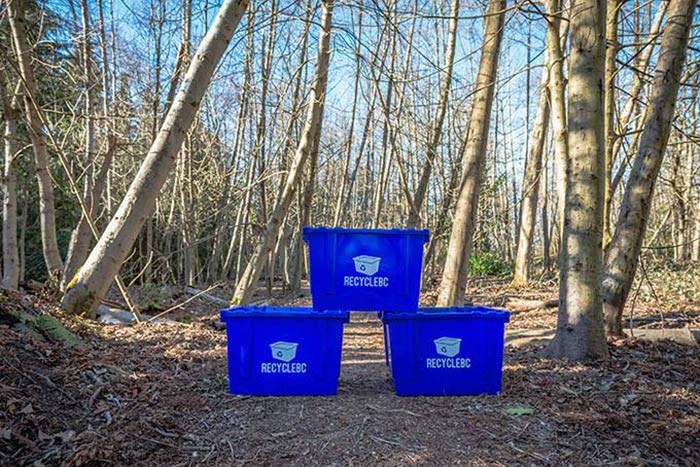Many newspapers across British Columbia, including this one whose proud history goes back to 1916, will face significant hardship if the newspaper industry becomes required to pay fees levied by Recycle BC under the Province’s extended producer responsibility (EPR) regulation.
What is EPR?
EPR levies fees on manufacturers and retailers for the packaging that wraps everything from the food we eat to the toys our kids play with. Any parent who has helped their child open a new toy knows that between the thick plastic that practically takes garden shears to open, the twist ties, and the cardboard, there is still way too much wasteful packaging associated with so many products.
EPR has one laudable objective: Reduce packaging in the waste/recycling stream. It does so by shifting the burden of recycling costs from taxpayers to producers. When producers must pay these fees, they innovate and find ways to wrap their products in far less packaging.
Since the advent of the blue bin, newspapers have had the highest level of collection of all recyclable materials – more than plastics and even more than aluminum. Newspapers continue to be a valuable recovered resource in the recycling stream. They have a stable end market and high commercial value. And recycling newspapers saves trees.
Newspapers have always been a public good – The dissemination of news to the public is a necessary element of a vibrant and healthy democracy and a well-functioning society. Fake news – around COVID-19, elections, and many other issues – has highlighted the importance and value of credible news provided by trusted media sources. Indeed, newspapers, have played and will continue to play an important role in educating the public on environmental issues, including recycling. Newspapers allow the reader to pause, engage, and reflect – providing an important service that is not met through other media. They also allow local small business to reach potential customers through advertising.
Newspaper publishers are strongly supportive of the BC government's objectives of reducing unnecessary packaging and waste. Unfortunately, the capture of newspaper in the regulation fails to recognize that newspaper is the product, not the packaging, and effectively subsidizes actual waste producers.
Across Canada, newspapers face a patchwork of provincial regulations, administrative regimes, and fees. The levies charged are based on opaque formulas often devised by monopolies controlled by large retailers and consumer packaged goods companies. The name Recycle BC (RBC) may sound like a provincial agency. However, with a board dominated by actual waste packaging producers and retailers, it is anything but. It has kept fees on plastic waste relatively constant, while jacking the fees for newspaper by as much as 80% in a single year. Effectively, RBC is subsidizing plastic and other waste through fees charged to newspaper publishers.
Given that newspapers are the product and not the packaging, we believe newspapers should be granted an exemption with an ongoing requirement for recyclers to collect newspaper. The Province already exempts books, so there is precedent for this. If a cheesy paperback romance novel is exempt, shouldn’t newspapers, which provide a vital service to communities across British Columbia, also be exempt?
BC’s news publishers are responsible stewards. We have moved to thinner paper and environmentally friendly inks to lower our footprint. Driving up the cost of newspaper production with EPR fees drives down our editorial content as newspapers are forced to cut pages and, therefore, value to readers. The knock-on effects are a loss of jobs, many of which are unionized in a sector that is already facing many external challenges, potential shuttering of newspapers, and a less informed citizenry.
We cannot have a misguided system that puts newspapers at risk at a time when the public needs trusted sources of information more than ever before. Canada’s newspaper publishers applaud Ontario’s leadership in exempting newspapers, and we hope Premier David Eby’s government will do the same.
Paul Deegan is President and Chief Executive Officer of News Media Canada

